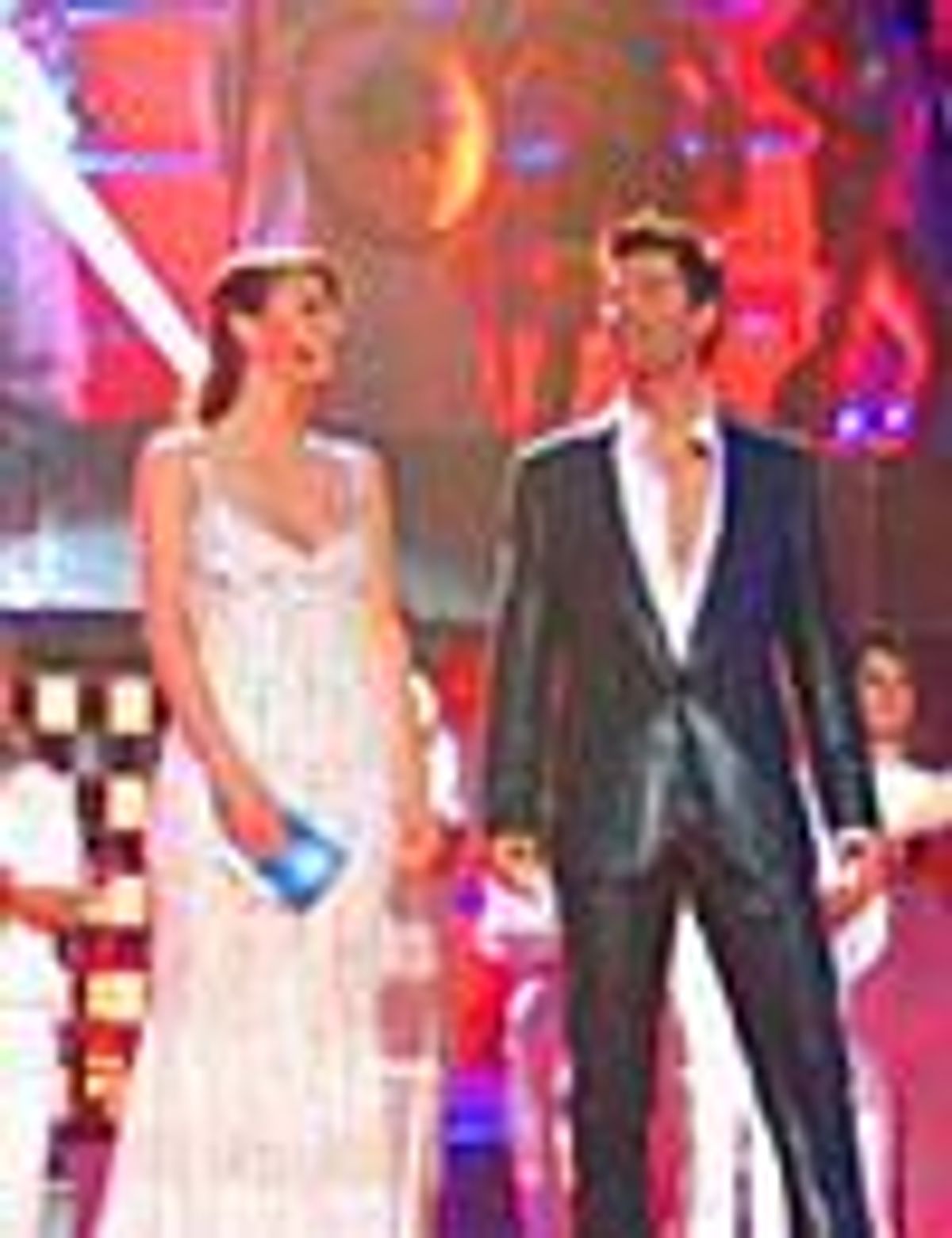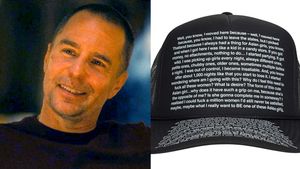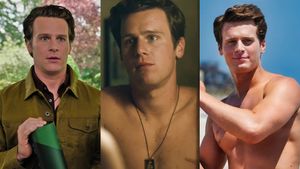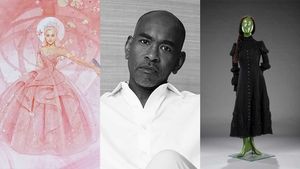If you think
American Idol is the most interesting
television singing contest in the world, then you've
got to experience the Eurovision Song Contest.
It's a pop culture phenomenon in Europe, the
gay TV party night of the year, and the most watched annual
music program in the world. In all of television, only the
Super Bowl and the World Cup draw larger audiences.
And, oh yeah, the Eurovision Song Contest is the
gayest TV program you can imagine--and we mean that in
a good way.
The contest has a
simple premise: First, each competing country selects
an artist or band to perform a new three-minute song. (No
Elvis or ABBA covers, please. ABBA rip-off bands?
They're another story.) Next, each
country's chosen artist performs their song live
during an annual television broadcast. Finally,
viewers from the participating countries vote for
their favorite songs--viewers cannot vote for their
own country's artist--via televoting,
just like on American Idol, except the phone
calls and text messages aren't free. Voting is
over in 10 minutes, and the winner is announced the same
night.
But you
can't rely solely on your song--or your vocal
performance--when you have only three minutes to
stand out from the crowd. That's why Eurovision
viewers are guaranteed to see costumes right out of Sydney
Mardi Gras, choreography that drag queens would reject as
"too much," and gimmicks galore.
Anything short of a (major) fire hazard seems to be OK.
But don't
take our word for it. Jane Comerford teaches a course in pop
music performance at the University of Hamburg. Given her
background as a pop music expert, we asked her to
explain the contest to American viewers.
"Eurovision is off-the-wall!" she told us.
"It's crazy. It's extremely camp
as an event; its campness is untoppable. It's
incredibly European. You have guys out there doing
whirling dervishes--which is that
guys-in-skirts-twirling-until-they-drop kind of
thing--from countries like Turkey. You've
got hard rock bands wearing monster masks from Finland,
and they're taking it all really seriously.
You've got big-ballad singers from like 30 or
40 years ago. It's a mixed bag. It's a unique
multicultural event. That's what's great about
it. That is what's funny and amusing about it
too. Everything is allowed; there are no rules." She
adds, almost as if telling a secret, "There are no
rules of taste either. Everything is
allowed--and basically everything gets done."
She knows what
she's talking about. Comerford doesn't only
teach courses in pop music; she's also the lead
singer for Texas Lightning, a country-and-western band
representing Germany this year. A Texas-style country
band singing for Germany just proves that almost everything
you see at Eurovision has the potential to be fun.
But not
everything is camp. Texas Lightning is no joke. They sing
some of the purest classic Nashville and Texas country
you've heard in years. The still waters of
Comerford's deceptively simple sounding lyrics run
deep:
I'm never ever gonna leave you to cry on your
own Never ever gonna not go and pick up the
phone I'm never ever gonna let you be
chilled to the bone No, no, never
No, no, never
So when we say
the contest is the gayest thing you can imagine, we mean
sometimes an entry is so bad it's good--like a
Showgirls kinda good. And often an entry might
surprise you by being actually good.
But we wanted to
introduce you to the gayest show on earth.
This year 37
countries are competing in the contest, which is taking
place in Athens, Greece. Since Greece won Eurovision last
year, the Greek public broadcasting network has the
honor of hosting the contest this year. With so many
countries wanting to enter the contest, those that
didn't get enough votes last year have to qualify for
the finals by surviving a semifinal round.
This
year's semifinal took place May 18. In the opening of
the semifinal broadcast, Greece presented the best
introduction and tribute to
Eurovision--celebrating 50 years--in, like,
ever. Near the beginning of the opening number a
dancer dressed like Zeus jumped on stage lip-synching
the most recorded Eurovision song of all
time--"Nel Blu, Dipinto di Blu
(Volare)" (Italy, 1958). You've probably heard
Dean Martin's version. "Zeus,"
incidentally, was wearing an ill-fitting curly white
ladies' wig.
Almost before you
could take that in, another performer, dressed as Eros
(wearing Bruce Jenner's old running shorts from that
Village People movie), flew over the stage like the
FTD florist suspended on cables, singing Brotherhood
of Man's "Save Your Kisses for Me"
(United Kingdom, 1976). Later Aphrodite herself was
birthed on stage, singing "Diva"
(Israel, 1998), by famous Israeli transsexual Dana
International. Then a choir of girls in plus-size
satin baby doll nighties popped out of Grecian urns to
sing ABBA's "Waterloo" (Sweden, 1974),
which in 2005 was selected by viewers as their
all-time favorite Eurovision song. And by the way, you
should know that the Eurovision Song Contest helped launch
careers not only for ABBA but also for Celine Dion
(Switzerland, 1988) and Olivia Newton-John (4th place,
United Kingdom, 1974).
The opening
looked like the kind of show you might have talked the
neighborhood kids into staging with you while you were
growing up--if you had a budget for glitzy
costumes and professional dancers and singers. In
fact, the whole contest has a "Let's put on a
show" feel, which might seem even more timely
today in the age of YouTube and reality TV than in the
days of Judy Garland and Mickey Rooney musicals. Come to
think of it, that aspect of the proceedings just might
be the biggest part of its appeal as the gayest show
on earth.
Have we made you
just a little bit curious? It's difficult, but not
impossible, for North Americans to get a peek at the
contest. There are bootleg videos of performances on
various Web sites (try searching YouTube.com for
"Eurovision 2006"). The 2006
final--which takes place May 20--will be
streamed live on the Web at www.eurovision.tv at 3:00 p.m.
Eastern. DVDs of both the semifinal and the final can be
preordered now at www.eurovisionshop.tv. But before
you take a look at your first Eurovision clip, be
warned: Checking out just one entry might be enough to
get you hooked.

















































































